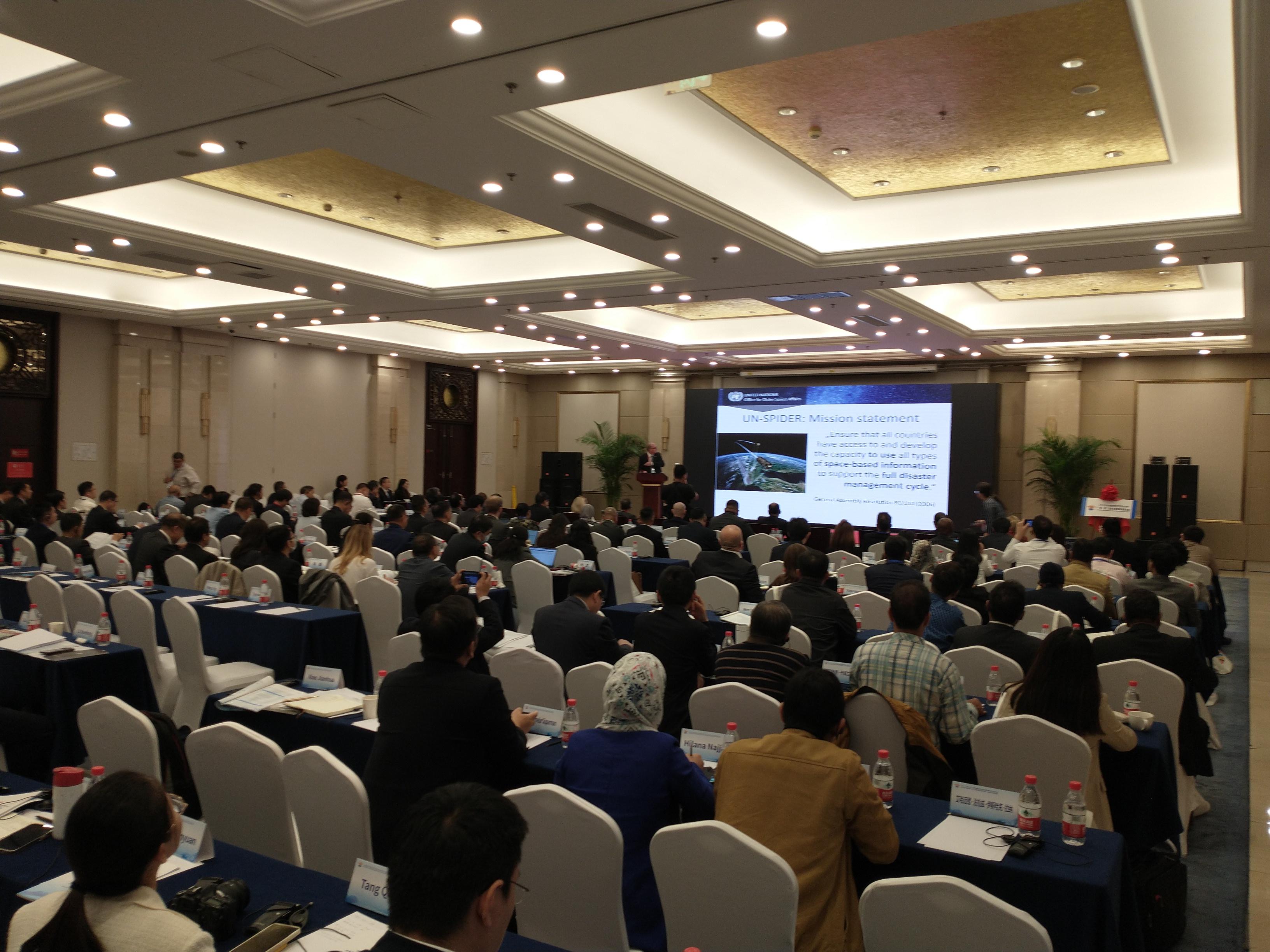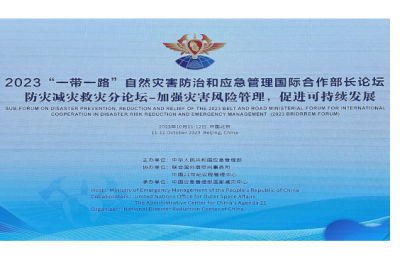On 11 October 2023, high ranking authorities of the Ministry of Emergency Management of the People’s Republic of China, the United Nations Office for Outer Space Affairs and other government agencies in international and regional organizations opened the Sub-Forum on Disaster Prevention, Reduction and Relief in Beijing, China. The Sub-Forum is one of the activities of the Belt and Road Ministerial Forum for International Cooperation in Disaster Risk Reduction and Emergency Management that has been launched by the Government of the People's Republic of China.
In his opening remarks, the Vice Minister of the Ministry of Emergency Management noted that China is one of those countries that has experienced major disasters in recent decades, and that under the leadership of the General Secretary of the People's Republic, Mr. Xi Jinping, China has launched a holistic effort to ensure effective disaster prevention, mitigation, and relief under the principle of giving priority to people and life first.
Recognizing the effects of climate change in exacerbating the dynamics of natural hydrometeorological hazards, and those novel trends in development, the Vice Minister recognized that disaster risks are becoming more complex and systematic. Therefore, the Ministry of Emergency Management has launched a transformation of public security to address risk more effectively, while also strengthening the overall capacity of the government and communities at risk to respond to the impacts and effects of disasters.
The Deputy Director General of UNOOSA remarked that this is the only agency of the United Nations addressing the topic of space explicitly, and that for many decades, it has been advocating the use of space technologies to contribute to sustainable development, and that through its UN-SPIDER programme, it has been promoting the use of space technologies to confront the challenged posed by natural hazards and to contributed to the implementation of the Sendai Framework for Disaster Risk Reduction.
He made participants aware of the recently launched “Early Warning for All” initiative that was launched by the Secretary General of the United Nations in 2022. He stressed that a major component for any early warning services is space technology and data collected by satellites, and that through its UN-SPIDER programme, UNOOSA hopes to play a significant role in the implementation of the activities under this key initiative, together with other mandated UN entities, building on the extensive experience of UN-SPIDER in assessing user needs and identifying technology and access gaps in more than 55 countries visited for the provision of technical advisory support.
The Sub-Forum, organized by the National Disaster Reduction Centre of China with the support of the UN-SPIDER Beijing Office, is held on 11 and 12 October 2023 in Beijing, and includes a variety of presentations from several institutions in China, the United Nations, and disaster management agencies of several countries in Asia, Africa, and Latin America. Nearly 200 participants are participating in the Sub-Forum.
UN-SPIDER used the opportunity to present its activities, its efforts in the area of early warning systems, and its Knowledge Portal.


